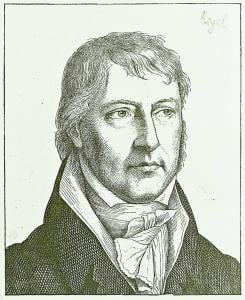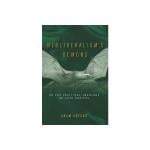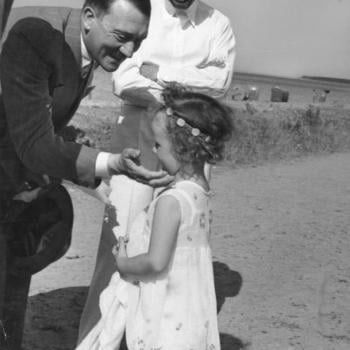
Lately I have been reviewing some old readings, ones I read and studied years ago: Hegel, Barth, and Robert Jenson. I have mentioned here before how Jenson’s book “God After God: The God of the Past and the Future As Seen In the Work of Karl Barth” (1969) launched my theological career. Probably the single most influential book of theology in my life. I was privileged to know Jenson much later as he and Carl Braaten invited me to participate in two of their weekend ecumenical theological seminars.
I read Jenson’s book after reading some of Barth’s Dogmatics. I read other books about Barth’s theology, especially Berkouwer, von Balthasar, and Bloesch. However, I found much delight and interest in Jenson’s book.
Hegel’s philosophy of religion has long been a special interest of mine. I have read all of his Lectures in the Philosophy of Religion and been very intrigued by the question whether Hegel should be considered a Christian or not.
My main area of interest in all three of these theologians (and, yes, I count Hegel a theologian!) has been the doctrine of God. What is God? Who is God? And especially does the God of the Bible have a history? Is God historical in some sense? That question led me further into Moltmann and Pannenberg especially. I had the privilege of studying with Pannenberg in Munich. My Rice University doctoral dissertation was “Trinity and Eschatology: The Historical Being of God in the Theology of Wolfhart Pannenberg.”
My recent re-readings of Hegel, Barth, and Jenson have shed some new light on the questions above (about God’s alleged historicity). I want to report on my discoveries here and invite discussion.
First, I have again been intrigued by Hegel’s account of God and the world in which the world is necessary for God as God’s “Other.” Many secondary sources I have read have argued that Hegel introduced TIME into God because he talks endlessly about a process of God’s engagement with the world in which God actualizes himself in the world as his Other. “Without the world God would not be God,” Hegel says in Lectures.
But, then, I stumbled on something in the Lectures I had not noticed before. In Volume III he says “When, accordingly, we say that the Other [the world] is a vanishing moment; that it is merely a gleam of the lightening-flash, which, in appearing, directly disappears; that it is the sound of a word, which, in being spoken and heard, disappears so far as its outward existence is concerned—we are very apt, when we think of things of this transitory sort, to have always before our minds the idea of the momentary in time, with its before and after, and yet it is in neither of the two. What we have really got to do is to get rid of that time-determination, whether it be of duration or of the present, and merely to keep to the simple thought of the Other, the simple thought, for the Other is an abstraction.”
Barth, in CD, seemed to introduce time into God, although that has always been a matter of debate. He seemed to speak (or write) out of both sides of his mouth about God and time. Jenson argues very strongly that Barth’s Christology and trinitarianism require time, but that time, especially the time of Jesus Christ, determines eternity. That is, for Barth. “If what happens with Jesus in time is the central event in the eternal existence of God, then that existence must be historical. God must have a history. God is not a timeless Being….” (72)
It is clear which side of the debate Jenson took! “God is not a timeless Being” because of Jesus Christ. What happened for God in Jesus Christ determines God’s eternal being. For Jenson, anyway, the Trinity is Father, Jesus, and the Holy Spirit. There is no “logos asarkos”—not incarnate Logos, Son of God. Pannenberg put it another way (and Jenson and Pannenberg were good friends): “As this man, Jesus is God.”
After reading God After God I went back and re-read portions of the CD and decided that Jenson was right. For Barth, God’s eternal life is marked by time. Time, our time, Jesus’s time, matters for who and what God is. That is Barth’s and Jenson’s interpretation of what Karl Rahner said—that the economic Trinity is the immanent Trinity and the immanent Trinity is the economic Trinity (“Rahner’s Rule”).
There is a sense, then, in which Barth and Jenson were more radical than Hegel! Only, for them, God’s timeliness, God’s historical being, is a self-determination of God to be FOR US in eternity. Hegel believed God needs the world to be who he is; Barth and Jenson make God’s relationship with the world, with us, solely a relationship of grace on the part of “The one who loves in freedom.” But once Jesus happens, there is then never God without the world, the man Jesus, who is God’s decision of self-determination to be for us acted out in world history. By a free and voluntary self-determination of God, he becomes (as Eberhard Juengel also argued). His being is in his becoming.
Your thoughts?
*Note: If you decide to comment, keep it relatively brief (no more than 100 words), on topic, addressed to me, civil and respectful (not hostile of argumentative) and devoid of pictures or links.*

















